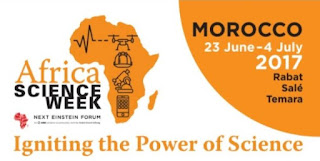As in previous years, students from schools located in practically every county on this island come together to showcase and explain to fellow students and the general public, the results of weeks of scientific work they have been engaged in.
In Africa, science and technology play the same important role in the lives of people, as well as in the various countries’ National Development Plans same as in any other country in the world.
In Ghana, for example, barely 17 months after the country became independent of British Colonial Rule, the National Research Council (NRC) was established in August, 1958 by the Research Act 21.
The NRC was the predecessor of the Council for Scientific and Industrial Research (CSIR), which came into existence in October 1968.
Science has also been an important subject in the curriculum in the country’s education system right from the primary school level.
Science Education continues throughout the different levels up to and beyond the third level, with the work undertaken in multiple scientific disciplines in the country’s research institutions.
Africa Science Week is Africa's annual weeklong celebration of science and technology with thousands of individuals - from students to scientists and technologists - actively engaging in coordinated science events across the continent.

